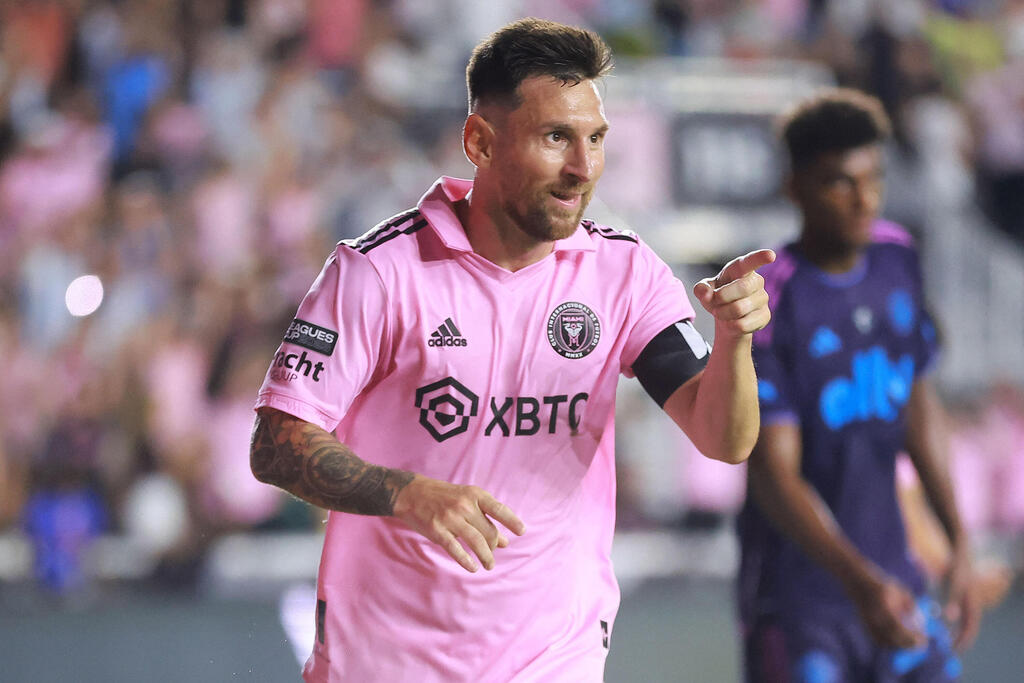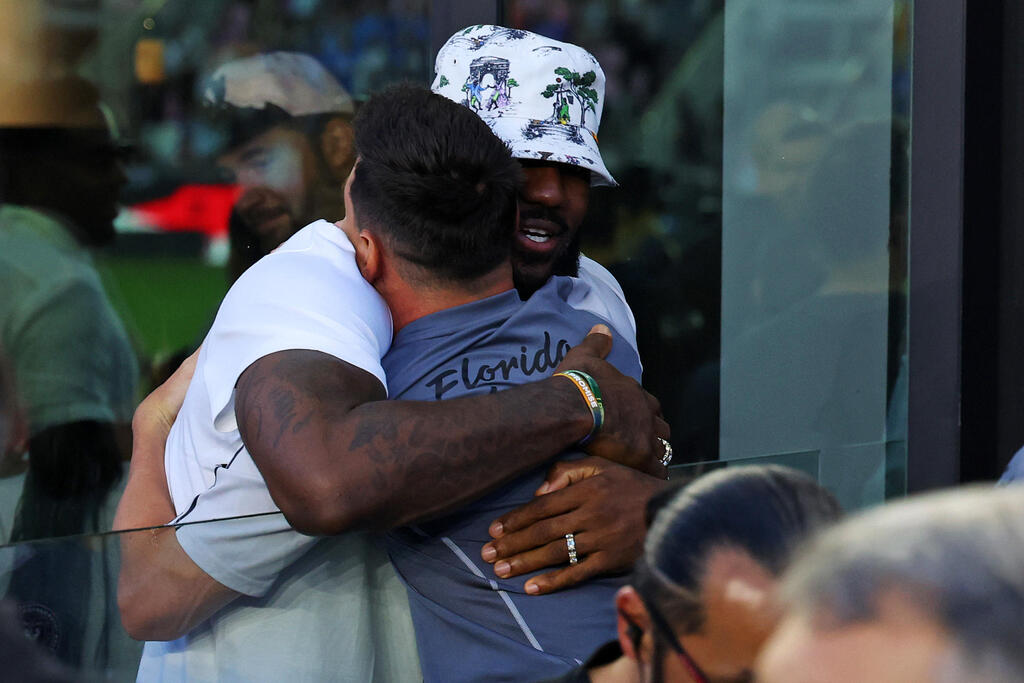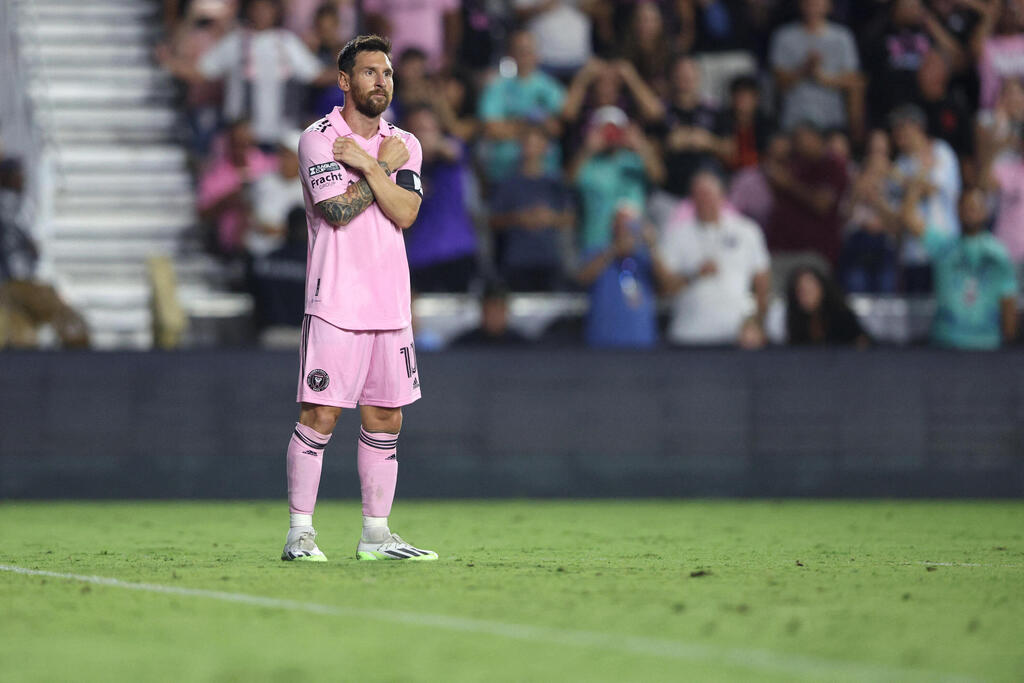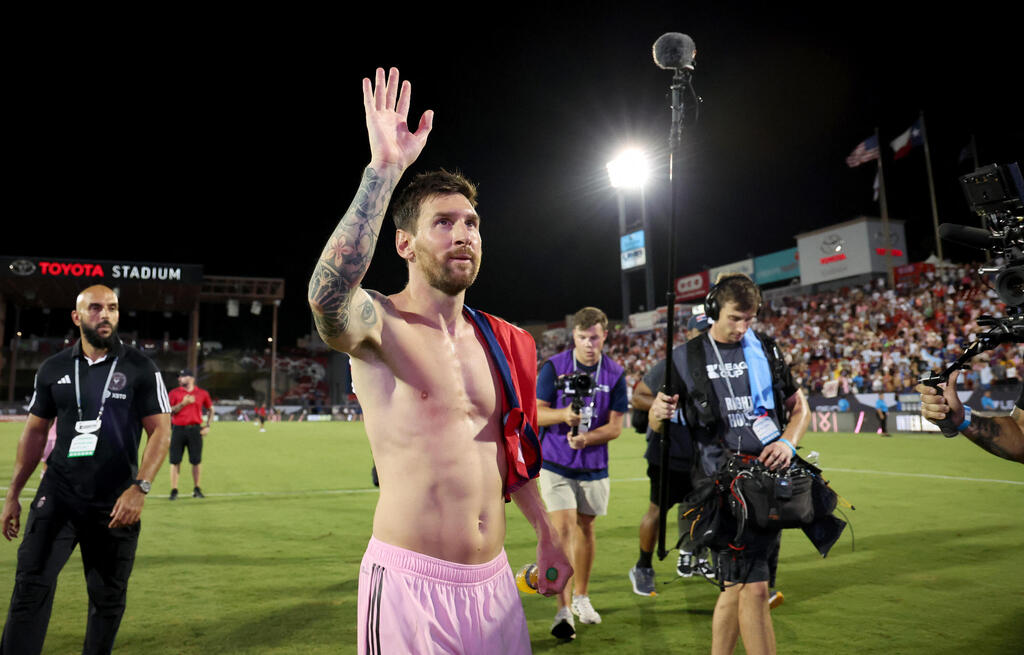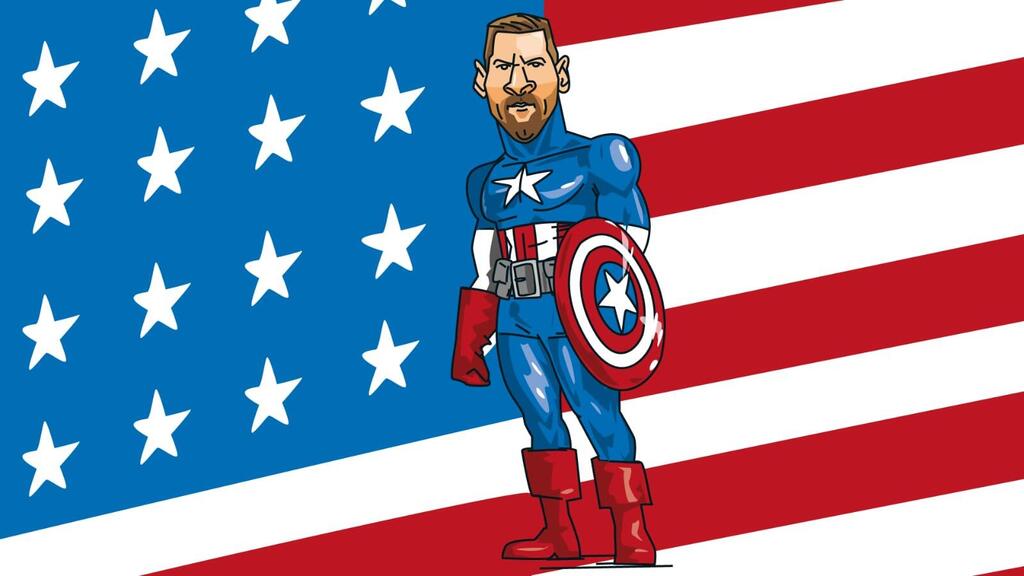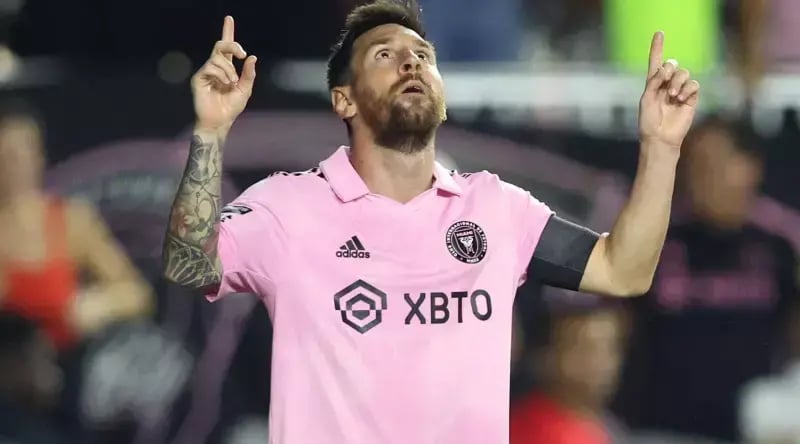Getting your Trinity Audio player ready...
Lionel Messi has moved to Florida to do what millions have done before him: bask in the sun and the azure beaches, and relish in the allure of no state income tax. He's starting his retirement.
Read more:
Yet, unlike the others, the Atomic Flea hasn’t even entered his fifth decade yet. Instead of playing bingo or having dinner at 3pm, the Argentine star is busy with his soccer farewell tour, which began with a game-winning free-kick goal in the 94th minute.
It was nearly an inconsequential match, but the crowd was ecstatic. LeBron James came to embrace Messi, who was adorned in a dusty Boca Juniors jersey. David Beckham wept as if he'd been transported back to May 1999, preparing to take another corner kick against Oliver Kahn in the Champions League final. The entire spectacle was both over-the-top and completely expected.
Another star of Messi's magnitude, Tom Brady, also made a similar (albeit shorter) journey to wind down his career in Florida. However, the football icon continued playing at the highest levels against top-tier opponents and even clinched a Super Bowl with Tampa Bay.
Messi, arriving as a world champion, has transitioned to a third-tier level of global soccer, making the surroundings somewhat damp. But his challenge is distinctively different: He aims to rejuvenate, for the seventh, eighth, or who knows which time, soccer in the U.S.
It's his personal playground
Messi is quickly turning the MLS into his personal playground, netting his eighth goal in five outings during a 4-0 victory over Charlotte FC in the Leagues Cup quarterfinals. His scoring spree has also seen a variety of celebratory gestures: sometimes a dance, other times the Black Panther salute or even Spider-Man. Not coincidentally, all are characters from Marvel. The league has a partnership with the company, and Messi has business ties to the league. It seems the superstar isn’t spontaneously promoting superheroes but perhaps driven by more commercial motives.
In a culture that's unsure whether a successful free-kick is worth one or three points, this is how it looks: two helicopters hover regularly over Inter Miami's training ground while players practice, broadcasting to news sites. Hundreds of journalists, including teams from Argentina, flock to cover the training sessions, even though they can stay for no more than 15 minutes. Fans chase after Messi's family, capturing and sharing videos of them dining, shopping, entering cars, walking or merely standing – much like believers witnessing Jesus walk on water.
Even in a celebrity-packed city like Miami, it's uncommon to see such a relentless swarm of paparazzi on a daily basis. Restaurant walls are adorned with posters, shirts and photos of Messi, and anything related to Argentine culture and cuisine has become a hit. Miami and American soccer are set to reap significant benefits from the mega-star's arrival.
However, Messi himself also stands to gain. While he inked a "modest" $160 million three-year contract, a fraction of what he might have earned in Saudi Arabia, he chose America not only for competitive soccer but primarily with an eye on where he could best elevate the "Messi" brand globally post-retirement. Here too, the rivalry and contrast with Cristiano Ronaldo, the nemesis who has defined him and vice versa, remain evident.
Other shiny names have graced American soccer before, heralding pivotal moments for the sport. Yet, few truly lived up to the hype, from Pelé to Thierry Henry. The only one who did make a significant impact was Messi's new boss, but he was among the pioneering metrosexuals for whom soccer was just a part of his overall allure.
The weekly show
Messi is stepping onto a soccer landscape different from the one Pelé encountered in his time. Soccer in the U.S. has grown in popularity among youth and women; the Internet has bridged the gap, allowing fans to follow the Argentine maestro's live performances at Barcelona, and millions of immigrants from Mexico and other soccer-loving nations have boosted his fame.
Messi came to play and win, but primarily he arrived to do what Americans love most – market and promote. The club's merchandise store is selling heaps of jerseys priced at $200 apiece.
"Miami looks as if flocks of human flamingos have descended upon the city," read a local newspaper. Ticket prices for matches have skyrocketed. Instead of generic crowd shots, roaming cameras in the stands are zooming in on celebrities like LeBron James, Serena Williams and Kim Kardashian.
Every Miami game, once the worst team in the league before Messi joined, has become a must-see event, whether in the stadium or on screen. Numerous walls have been adorned with murals of the soccer genius. Many restaurants added dishes named after him to their menus.
His arrival is not just a romantic tale. He didn't forgo a salary ten times higher in Saudi Arabia out of a heightened sense of morality; it was a business decision.
Tech giant Apple purchased the broadcasting rights of the American league for $2.5 billion over ten years – three times the amount the league received annually under its previous television contract.
But it's not just about the money. Apple, a streaming behemoth, has the capacity to bring the American league to every household. The "Messi Portal", which includes live broadcasts of all the player's games and training sessions, costs $39 per season.
His move to Miami has already attracted players like Sergio Busquets and Jordi Alba, with Luis Suárez likely to join soon. And this is just the beginning.
A Latin celebration
Apple has already announced that Messi will receive a portion of the profits from its streaming services and that it intends to finance and market a five-episode series about the man and the legend. Adidas has promised him a percentage from the sales of its soccer line in the U.S. The focus of these companies, and other major corporations investing their sponsorships and checkbooks into the sport, is naturally the 2026 World Cup.
Messi is a big name in Miami, a city that's half Spanish-speaking and considered the unofficial capital of Latin America. He joins Beckham, another powerhouse in marketing and profitability.
A few years ago, the Englishman invested $25 million into the project. Today, even before the Messi deal, the club's value is estimated at $600 million. Beckham co-owns the team with four other owners from three different countries. They all want a piece of the cake.
The stadium where Miami currently plays can hold close to 20,000 spectators. If, before Messi's first game, the average ticket was priced at $30, anyone securing a ticket today for $400 feels like they've won the lottery. Ticket prices on resell sites have jumped from $150 to $850, and there's been an even bigger surge for Miami's away games.
This is just the beginning
Adidas has already announced that all of Messi's jerseys have sold out and won't be available in online and physical stores until October. On the very first day, more Messi jerseys were sold than what Miami had sold in the first seven months of the year, topping the sales list over all professional sports teams in America, across all disciplines.
The team's Instagram account surged from one million to 13.5 million followers, ranking fourth among all professional sports teams in the U.S. Searches for merchandise bearing Messi's name on eBay skyrocketed by hundreds of percent.
You can already see it, imagine it, feel it. The future looks brighter than Messi's new jersey. Soon, major companies will redirect a portion of their advertising budget to soccer. Before long, 80,000-seat stadiums will fill with fans eager to witness the wonder. People will soon grasp the profound emotions of watching Messi work his magic in his Adidas shoes. All this, not bad for a man nearing retirement.


